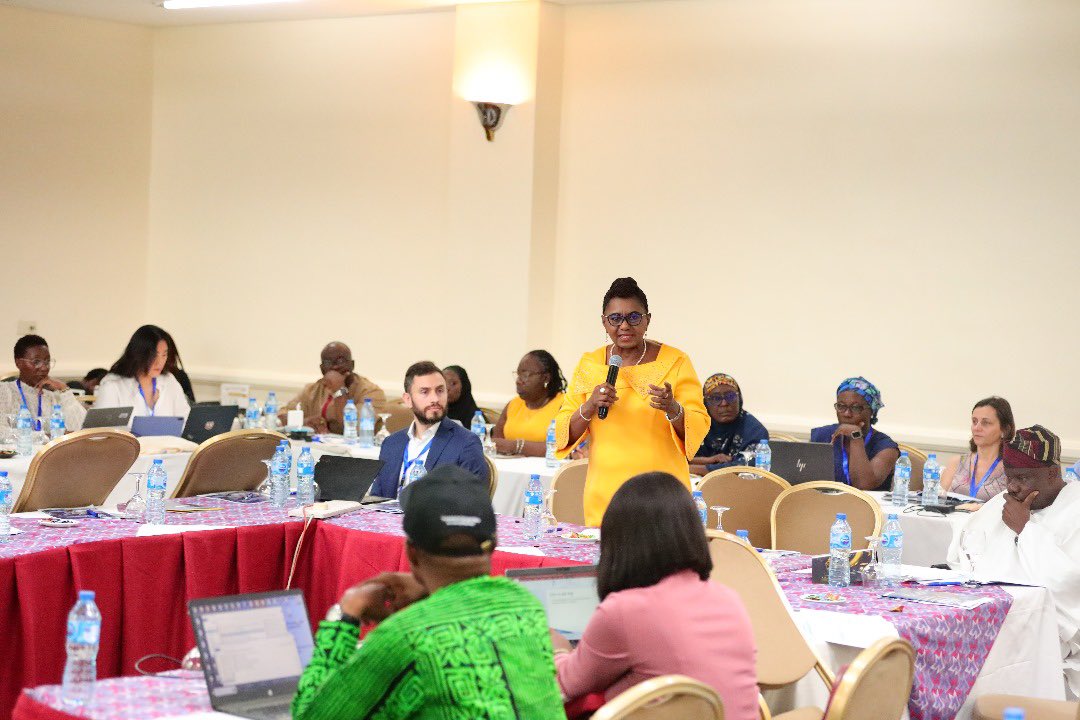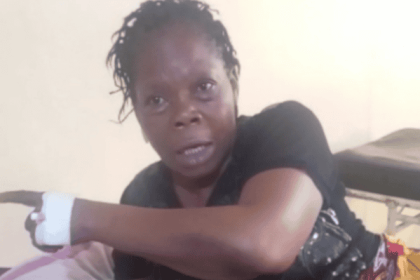Chinua Achebe – the literary icon – was not just a master storyteller and poet; he was unarguably one of the rarest gems of his generation, and his works transcend cultural and linguistic boundaries. Achebe was adept at deploying words to pass across salient messages and, importantly too, his simplicity of language and mastery of African proverbs make his books unputdownable. One such proverb, in particular, stands out because it challenges every well-meaning African to do some serious introspection concerning our approaches to tackling the worrying issue of health workers migration in Africa.
In “Things Fall Apart”, which many Achebe enthusiasts regard as his magnum opus, Eneke-nti-oba, the bird says; “Men of today have learned to shoot without missing, and so I have learned to fly without perching.”
I have not set out to analyze one of Achebe’s most celebrated works. However, I consider it necessary to appreciate the wisdom of the ‘bird’, especially from an African perspective. Because it reminds us all, that “a dancer must always be in sync with the drummer, otherwise, his efforts will be counter-productive. Better still, we must not just stop being conscious of any challenges affecting our society; we must be proactive in taking up the gauntlet to address them. For, as it’s often said; “A stitch in time saves nine Apologies for digressing, though!
Whereas Africa’s health workers’ migration -or brain drain – has become a kind of crisis today, it must be emphasized that the situation did not occur suddenly. Rather, it has been simmering for decades.
In Nigeria, for instance, Doctors; Nurses, and other health workers are leaving the country’s health sector in droves and there seem to be no end in sight! The same goes for Ethiopia, Kenya, Malawi, South Africa, Tanzania, Uganda, Zambia, and Zimbabwe. According to the Mo Ibrahim Foundation, “Africa has lost more than $2.0 billion since 2010 from training doctors who then migrated” to countries in Europe, America, and Asia. Comrade Martin Adekunle Egbanubi, the National Secretary of Joint Health Sector Union, (JOHESU), an umbrella body of health workers’ unions and associations in Nigeria, describes the situation as a “Tsunami”.
He blamed the migration of health workers on the dearth of adequate funding of the health sector at all levels of governance while citing the ILO Convention 100, which he says provides for “equal remuneration for work of equal value.”
“So, the issue of funding is tied to the provision of adequate remuneration and welfare services for workers in the sector, and then infrastructure. When these two things are lacking, you leave the health care workers with no option but to access opportunities where some are provided”, he added.
It is fundamental for Africa to explore proactive solutions to societal challenges, especially one as serious as the health worker migration. Thus, against the backdrop of the recent Policy Dialogue hosted by Nigeria’s Ministry of Health and Social Development, in conjunction with the World Health Organisation (WHO) Regional Office for Africa and Country Office for Nigeria; and the African Health Observatory – Platform on Health Systems and Policies (AHOP), one can boldly infer that the era of doing little or nothing may soon be a thing of the past.
Professor Obinna Onwujekwe, from the Health Policy Research Group of the University of Nigeria, (UNN), is also the Director of the National Centre for the African Health Observatory Platform on Health Systems, AHOP. His words bring hope amid a storm;
“One of the major areas to achieve Universal health coverage is service delivery. If you don’t have the health workers, if they are leaving then, obviously it means we cannot achieve Universal Health Coverage, and the health of the citizens suffers. People cannot have access to the health services they need. So, that’s why it’s why this issue must be tackled for us to be able to strengthen our health system. If you look at previous indices, we are not even achieving the health worker – worker – patient ratios needed for many services, we’ve not achieved the global standards, and now people are leaving. It means those ratios are even getting worse. So, it’s going to be very difficult if you don’t address it. That’s why this gathering is quite important, that we look at issues from an African perspective; what many countries are doing, what has been done globally, and then also learn what we are doing here and put all those ideas together in this policy dialogue, to be able to come out with implementable and feasible solutions that can help to address the problem. Because you can have solutions that are not implementable, you can always think of some crazy ideas like paying people billions, but we are talking about …..feasible solutions that can help stem the tide of health worker migration…..”
However, a strong government delegation at the recent Abuja meeting from the Ministry of Health and Social Development, and also from the National Assembly (the Nigerian Senate and House of Representatives), also deserves commendation. And Senator (Dr.) Ipalibo Banigo, Senate Committee Chairman on Health; Secondary and Tertiary Health Services, was obviously elated to be a part of the Confab. “I am pleased to be at the African Health Observatory platform, a very important platform. Already, our legislative health agenda for this 10th Senate is to ensure efficient stewardship and a better accountability framework toward achieving Universal Health Care. ……..this is a platform across various nations in Africa. So, it’s an opportunity to hear what other people are doing in their countries about mitigating this brain drain issue of healthcare workers………..it’s an opportunity to have discussions and to be able to look at our expectations and how we can move forward to get better outcomes.
And speaking of better outcomes and moving forward, one key takeaway from the conversation with Senator (Dr.) Ipalibo Banigo is a bold affirmation of some shortcomings of the Nigerian government, particularly concerning funding the health sector:
“In this year’s budget, for instance, we have implemented for the first time, what we call the vulnerable group fund. Now, this fund has always been in the National Health Act, which was assented to in 2014 but it had never been implemented. And this……..fund addresses the health issues of the Under 5, of pregnant women…….the elderly above 60, retirees, internally displaced persons, and people with disabilities. The idea is to channel this fund through the National Health Insurance, ……….the State Health Insurance, so that it can cover health insurance for these critical people. Because a lot of what causes poverty is the fact that over 70% of the expenditure on health is out of pocket………… we are thinking inside and out of the box, looking for more ways, partnering with the private sector, with development organizations, to ensure that we can increase the resources, but at the same time as having more resources, we also need a better accountability framework. That is where our oversight comes in as Legislators. We need to follow up on these funds and track them to make sure they are used for what they are meant for. We want to look at all of these issues, to be able to address them legislatively”.
For Dr. Serge Bataliack, Coordinator of the Integrated Health Observatory in the WHO Regional Office for Africa, the issue of migration is also a human rights issue. Nevertheless, in attempting to address the problem, there has to be a fine balance between protecting the fundamental human rights of individuals on the one hand, while working towards strengthening healthcare delivery systems in Africa.
“Technically, there’s no way for you to block anyone from going out, it’s a human right. For some, it can be considered brain drain and for others, it is brain gain. But for us, as Africans, what are the solutions, what do we want our people to benefit from? We need better health outcomes; we need more skilled personnel. It’s a mix of actions that should be made, integrating people who are trained and also integrating the policies that are in place in different countries. The idea is how to mitigate the risks. One key fact is that by 2030 – this is based on studies made by many countries and projections from WHO, – we will have a gap of 6.1 million health workers. So, the idea is, to let us discuss and find ways. Some countries are now involved in a lot of health reform agenda. I think this the right time to have that paradigm shift and find a solution”.
Dr. Bataliack also highlighted the critical role of the WHO geared towards mitigating health workers’ migration in Africa; “At WHO, our role is to support the countries in generating evidence and also in setting up policies that will help in getting better outcomes”.
The importance of the April 25th Abuja meeting cannot be overemphasized, especially at a critical time when Africa’s healthcare delivery systems have been and continue to be emasculated by the brain drain problem of healthcare worker migration. Therefore, the “coming together of decision-makers, practitioners, and researchers from several African countries to discuss the impact of health workforce emigration, and policy measures and interventions, including bilateral agreements, to mitigate its risks on health”; is a welcome development.
Thinking in and out of the box, finding implementable solutions, and ensuring transparency and accountability will surely trigger a breath of freshness in Africa’s beleaguered health sector, and we’ll all be better for it.
On the whole, thumbs up to Nigeria’s Ministry of Health and Social Development, WHO, AHOP, Delegates, and participants from various African Countries (not forgetting development partners), for kickstarting a quiet revolution to mitigate health worker migration in Africa.
Indeed, the “dancers are well in sync with the drummer”!




